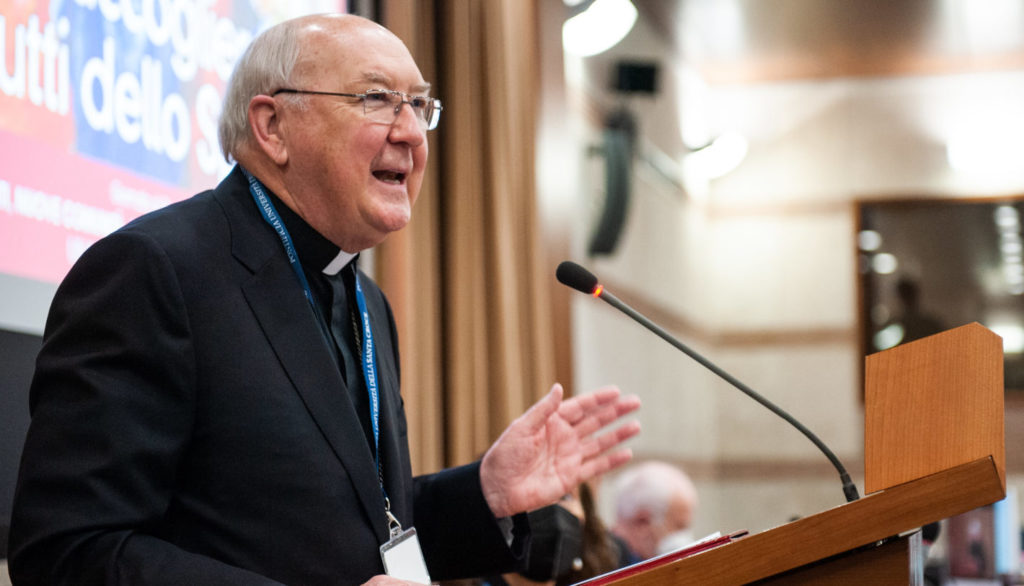Testo originale del articolo in inglese qui
Traduzione: Lino Bertuzzi
The Vatican will host the annual meeting of moderators of federations, ecclesial movements and new communities, which will focus on work as a place of sanctification and civil witness for all the faithful. On its part, the Pontifical University of Santa Croce hosted a study day also dedicated to the movements, in a theological perspective, reflecting on the aspects of the charism, of the battesimo and of the mission.
The Prefect of the Dicastery for the Laity, Family and Life, Cardinal Kevin Farrell, responsible for movements and new communities, spoke on the occasion.
Eminenza, why are movements and new communities important in the Church?
-Ecclesial movements, lay groups and new communities are so important in the world in which we live and in the secular culture that characterizes us, because they carry an energy, a grace, a spirit through which they can more easily communicate the Word of God to our contemporaries. In support, the movements are born to capture and carry the message of the Gospel to all people, not only with words, but also through the testimony of life in work and in daily life. This is the essence of the movements.
What prospects should these groups have in the light of the New Evangelization?
- It is essential that the whole Church realizes the importance of the movements for today's world. We live in a reality in which these groups carry practically the weight of evangelization. They are an integral part of the Church and have the commitment to fully live their mission, as well as the mission of the Church itself.
What is the common denominator that makes these movements a unitary fruit of evangelization?
-These realities must collaborate and work together in the dioceses for preaching, for the New Evangelization. And there is no movement that is better than any other.
It is always the Holy Spirit that has inspired the charisma in the founders and moderators, but then the bulk of the testimony comes from all the other adherents, because the founder is the specific person who has received the gift, but the movement is much closer to the center of the organization.







